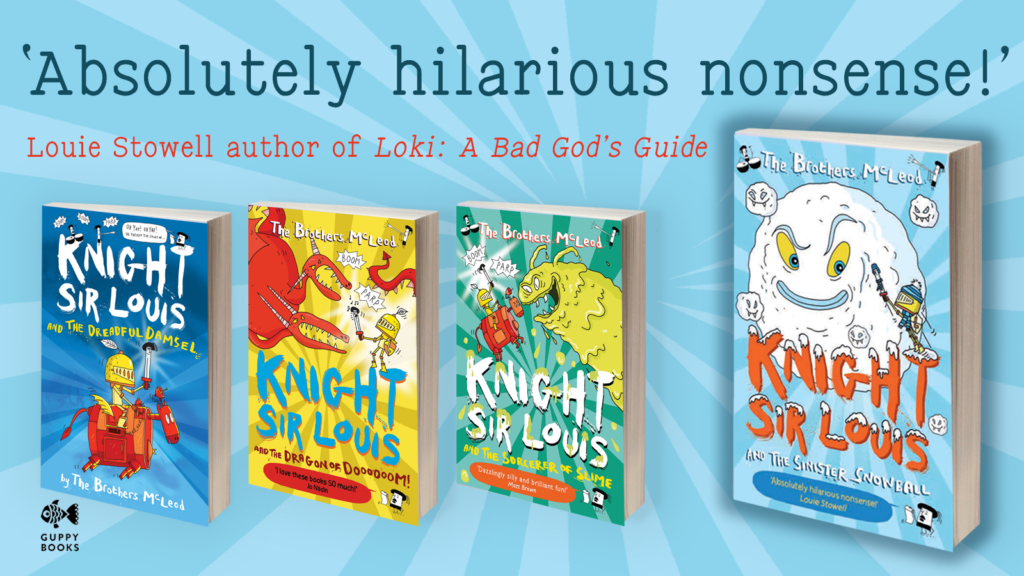Hands up all of you who think reading is a bad thing and should be discouraged? I’m guessing that’s none of you! No wonder we are all worried by the new survey from the National Literary Trust. They tell us more than half of children and young people do not enjoy reading in their free time. Even more sobering, their report says the number of 8 to 18 year olds who read daily in their free time has decreased 26% over the past 18 years. Now, hands up all of you who think laughing is a bad thing? I’m guessing that’s also none of you. But hands up those of you who think that drama is more important than comedy? Now, we’re not so unanimous.
Dramatic stories connect us to deep and powerful emotions. We read about injustice and complications and feel angry and sad on behalf of the protagonists. And we feel enormous relief when they win through, or grief when they ultimately fail. But funny stories just make us giggle a bit. So drama wins, right?
What does comedy have in its armoury to defend itself? I can think of at least three important points. The first is that comedy thrives in company. Reading a funny book with a friend or family member means you can laugh together. I recently received this note: “reading your books, laughing, and coming up with voices for all the characters stands out as some of the best times I’ve had with my kids.” I don’t think I’ve ever read such a lovely note. It makes me want to go and sit in a corner and have a little, happy cry. I know of another school who used our book as a class reader. Different children were in charge of reading different characters.
What a great (and funny) idea!
The second is that comedy books are eminently re-readable. My brother and I loved reading the Asterix comics when we were children. Some of the books actually fell to pieces because we re-read them so much. I’m not saying that dramatic stories can’t be re-read; I’ve done Lord of the Rings twice (what a show off!) But when you re-read a comedy, it’s a sort of self-care. It’s familiar like a blanket. It’s going to soothe you. (Favourites I’ve re-read recently are Cold Comfort Farm and the Adrian Mole books). I’d argue this is also useful as a reading exercise: reinforcing words, familiarising yourself with story structure and character.
Thirdly, comedy can be deep too. At its best it can be a safe space in which to examine our own flaws and the flaws of society. In Status Anxiety, Alain de Botton notes, ‘In the hands of the best comics, laughter acquires a moral purpose, jokes become attempts to cajole others into reforming their characters and habits.’ It also offers up the comforting idea that none of us are perfect.
That’s all very well, I hear a hypothetical audience member cry… but surely comedy can’t be used as a core text! The following appeared in a review of our first Knight Sir Louis book: “It is a hilarious book… I think my students would love it, but it will be a bit hard to use this as core text.” Reading this review made me feel sad. I thought it was a shame that a funny book packed with different types of writing (letter, dialogue only chapters, haiku, comic strip, diary, instructions, lyrics, fairy tale, gothic story) is considered unfit for use in an educational context. Especially, when they think the students would LOVE IT.
This speaks to a wider problem with comedy. Alexi Duggins, writing in the Guardian, notes, “essentially, there is no good reason for comedy’s inexplicable historic lack of recognition as high culture.” Aristotle didn’t help. He wrote the first works of literary theory. One on tragedy and one on comedy. At some point, the one about comedy was lost. It’s almost laughable.
If funny books are somehow considered lesser in the schoolroom and by the general public then it’s likely that belief will be passed on to the next generation. But, let’s remember funny books are ENJOYABLE books. They contain JOY. If we want children and young people to read for ENJOYMENT, then surely funny books should be a significant part of that programme?

Tickle your funny bones with The Brothers McLeod’s latest book, Knight Sir Louis and the Sinister Snowball, available from October 26th 2023!
 The Brothers McLeod
The Brothers McLeod